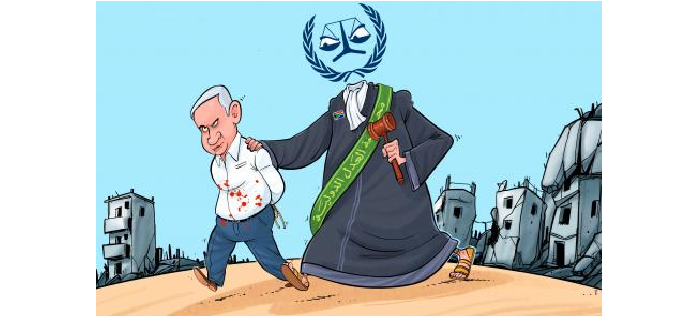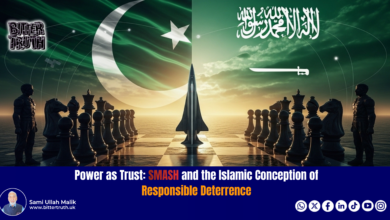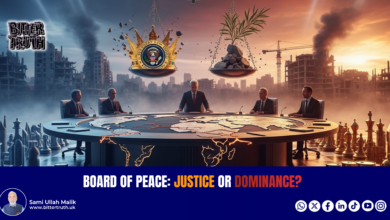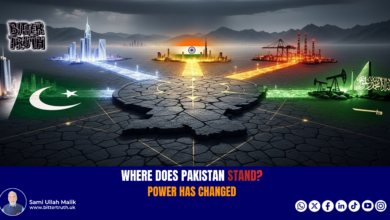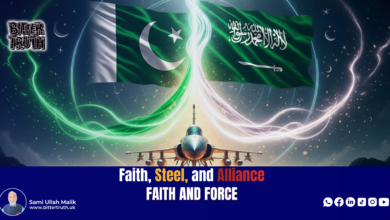ICC and Israel: The Battle for Justice
Netanyahu's Arrest: A Global Challenge
The ongoing conflict between Hamas and Israel, which escalated following Hamas’s attacks on Israel and the subsequent Israeli military responses in Gaza, has grown increasingly dire over time. In this context, allegations of war crimes against Israeli officials have been raised not only by Hamas but also by numerous international human rights organizations. These accusations gained significant momentum, culminating in the International Criminal Court (ICC) issuing arrest warrants for Israeli Prime Minister Benjamin Netanyahu and former Defence Minister Yoav Gallant. Several Western nations have declared their intent to enforce the ICC’s decision.
Reliable sources report that over 45,000 Palestinians have been killed and more than 80,000 injured, including 134–146 journalists and media workers, 120 academics, and over 224 humanitarian aid workers. Additionally, 179 United Nations staff members are among the casualties. Violations of international laws designed to protect civilians during armed conflicts constitute war crimes. These laws are codified in various international treaties, such as the 1949 Geneva Conventions and the Hague Conventions of 1899 and 1907.
Both parties in a conflict are bound by international humanitarian laws to minimize harm to civilians and mitigate the impact of war. However, merely labeling a country or its leaders as war criminals does not automatically establish their guilt. Irrespective of the degree of adherence to these laws, it is essential to understand what constitutes war crimes, the applicable international laws, the conditions under which they are enforced, and the process of holding perpetrators accountable.
The Role of the International Criminal Court (ICC)
Established in 1998 in The Hague, Netherlands, the ICC is an independent body tasked with prosecuting individuals accused of grave crimes against the global community. Its jurisdiction includes war crimes, genocide, crimes against humanity, and acts of aggression during armed conflict. While any country can prosecute such individuals in its domestic courts, the ICC intervenes only as a last resort when national systems are unwilling or unable to take action.
The ICC operates under the Rome Statute, its foundational treaty, which clearly defines war crimes in Articles 6, 7, and 8. These provisions, along with precedents set by international tribunals such as those for Rwanda and the former Yugoslavia, have shaped the modern understanding of war crimes. Historical trials like the Nuremberg Trials also played a crucial role in developing these definitions, later incorporated into the Rome Statute.
Defining War Crimes and Genocide
War crimes are broadly defined under international law, taking into account treaties, customary practices, judicial rulings, and the practices of global organizations. For instance, genocide is characterized as the intentional destruction, in whole or in part, of a national, racial, or religious group. The United Nations’ 1948 Convention on the Prevention and Punishment of the Crime of Genocide details preventive measures and punitive actions for such crimes.
Examples of genocidal acts include inflicting severe physical or mental harm on members of a group, creating conditions that threaten the group’s survival, forcibly transferring children to other groups, or imposing measures to prevent births within the group. The definition of genocide was first used in the Nuremberg Trials against Nazi leaders and has since been applied to atrocities in Rwanda, Cambodia, Bosnia, Iraq (against the Yazidis), and Myanmar (against the Rohingya).
Protections for Civilians in Armed Conflict
Article 7 of the Rome Statute emphasizes the protection of civilians not directly involved in hostilities. Targeting civilians or using weapons that disproportionately harm them, such as landmines or chemical weapons, is prohibited. International law also mandates care for the wounded and sick, including injured combatants. Acts such as taking hostages or forced displacement are classified as war crimes. Special protections are extended to children and cultural heritage under the 1950 Geneva Conventions, with the ICC having jurisdiction to prosecute violations of these provisions.
Although the ICC provides a framework for accountability, it faces challenges due to the refusal of some countries—such as the United States, China, Russia, and Israel—to ratify the Rome Statute. Consequently, while the ICC’s jurisdiction is global, its enforcement relies heavily on international cooperation. Cases of war crimes and genocide, such as the Holocaust or the ethnic cleansing of the Rohingya, highlight the importance of such mechanisms in delivering justice, despite the complex geopolitical landscape.
According to Article 8, war crimes can only occur during times of war, but crimes against humanity can be committed even during peacetime. These include acts such as violence against civilians, enforced disappearances, murder, displacement, sexual violence, and rape. Legal experts on war crimes highlight a key aspect: these crimes must constitute systematic attacks against civilians. For instance, if police in a country torture an individual, it falls under the Convention Against Torture, as it represents an isolated incident. However, if torture is carried out systematically and on a large scale against a population, it is considered a crime against humanity. Similarly, if an armed group invades civilian areas to loot, kidnap, and commit sexual violence, these acts also qualify as crimes against humanity.
The International Criminal Court (ICC) has the authority to investigate any individual or state, ranging from heads of state to generals who overstep or violate their orders. When it is proven that a war crime has been committed, what is the process for bringing the accused to justice in the ICC? In this regard, “punishment is meted out to individuals (e.g., a battalion commander or general); the state itself is not expected to endorse irresponsible actions, as accountability rests with the state.”
If a state allows, acknowledges, or incorporates such actions into its policy, it is in violation of international law. In such a case, states worldwide are compelled to take a stand against the offending state, severing diplomatic ties and imposing sanctions, and, if necessary, using force to convey the message that such actions are unacceptable. If, despite these measures, the state continues to violate international laws, other nations may decide to deploy a joint military intervention to prevent war crimes and protect civilians. In this context, the principle of Responsibility to Protect (R2P), endorsed by the United Nations Secretary-General, comes into effect.
It is noteworthy that on 5 February 2021, the International Criminal Court (ICC) ruled that it has jurisdiction to adjudicate war crimes and atrocities committed in Palestinian territories. This landmark decision has paved the way for the ICC to investigate war crimes in the ‘occupied Palestinian territories’ by Israel. Furthermore, the court’s jurisdiction extends to areas occupied by Israel since 1967, including Gaza, East Jerusalem, and the West Bank. The court clarified that this ruling was based on the rules of its founding documents and does not attempt to determine statehood or legal boundaries.
The court’s prosecutor, Fatou Bensouda, had previously called for an investigation, stating that there were “reasonable grounds to believe” that war crimes had been committed in the Palestinian territories. This decision was issued exactly a year after Bensouda declared that sufficient evidence had been collected during preliminary reviews to meet the criteria for opening an investigation into alleged war crimes in the Palestinian territories.
Following the ICC’s announcement of arrest warrants for Israeli Prime Minister Benjamin Netanyahu and former Israeli Defence Minister Yoav Gallant, several Western nations stated that they would comply with the court’s decision. Among Israel’s Western allies, the UK, Belgium, the Netherlands, Switzerland, Italy, Ireland, Spain, and Canada have all announced that they will honour their international obligations concerning this matter. The issuance of arrest warrants for Netanyahu and Gallant by the ICC has sparked strong reactions from Israeli politicians. While arrest warrants have also been issued for Hamas’ military commander Mohammed Deif, the decision has been welcomed by Hamas, Palestinian Islamic Jihad, and civilians in Gaza.
When asked if Netanyahu would be detained if he entered the UK, British Prime Minister Keir Starmer’s spokesperson declined to comment on “hypotheticals” but clarified that “the government will fulfil its legal obligations.” Similarly, Canadian Prime Minister Justin Trudeau, when questioned about Netanyahu’s potential arrest if he visited Canada, affirmed that “we will abide by international law and adhere to all rules and orders of international courts.”
Hamas, on the other hand, refrained from commenting on the arrest warrant for its military commander Mohammed Deif but welcomed the overall decision. However, Hamas appears relatively unconcerned about the possibility of Deif’s arrest. Israel believes that he was killed last year, although Hamas has yet to confirm his death.
In addition to Deif, the ICC intended to pursue action against two other Hamas leaders, Yahya Sinwar and Ismail Haniyeh, but their deaths have already been confirmed. In a statement, Hamas called upon “all nations worldwide to cooperate with the ICC in bringing Zionist war criminals Netanyahu and Gallant to justice and to work urgently to halt the genocide against civilians in the Gaza Strip.” Ordinary Palestinian citizens from Gaza have also welcomed the decision.
Mohammad Ali, a 40-year-old displaced resident originally from Gaza City, now living in the central Deir al-Balah area, said: “We have been targeted by terrorism. We have been starved, our homes have been destroyed, and we have lost our children, sons, and loved ones. We welcome this decision, and of course, we hope that the ICC’s ruling will be implemented.” Munira al-Shami, whose sister was killed by Israeli forces last month, described the ICC’s decision as a step toward justice for “tens of thousands of victims, including my sister Wafa.”
While 124 countries, including the UK, are signatories to the ICC, nations such as the United States, Russia, China, and Israel are not. Technically, this means that if Netanyahu or Gallant were to step foot in any ICC member state, they should be arrested and handed over to the court. However, international legal experts have expressed scepticism about the likelihood of either individual being presented at The Hague for trial.
The last time Netanyahu travelled abroad, he visited the United States, where he enjoys full immunity. However, he also visited several ICC member states last year, including the UK. Observers suggest it is highly unlikely that Netanyahu would risk travelling to these countries again under such circumstances. Furthermore, ICC signatory nations may be reluctant to face a situation where they would have to arrest Netanyahu.
Thursday’s ruling is undoubtedly a significant blow to Israel’s international standing. It challenges not only the individuals named but also Israel’s ongoing efforts to portray its military campaigns in Gaza as a battle between good and evil. For Palestinians, particularly those from Gaza, this decision represents a sense of validation, as an international institution has finally acknowledged the weight of accusations of Israeli war crimes.
Theoretically, major interventions, such as sending forces to prevent genocide in another country, fall under the mandate of the United Nations. However, if the UN fails to act and Israel continues its violations with impunity, some nations might begin considering independent action (as evidenced by the recent interception of a Yemeni-fired rocket by a US naval ship). Such measures, however, would pose a threat to global peace.
Prominent individuals previously convicted of war crimes by the ICC or other international tribunals include Serbian President Slobodan Milošević, Liberian President Charles Taylor, Bosnian Serb leader Radovan Karadžić, Sudanese President Omar al-Bashir, Libyan leader Muammar Gaddafi, Peruvian President Alberto Fujimori, and figures from World War II such as German Admiral and President Karl Dönitz and Japanese Prime Ministers and generals Hideki Tojo and Kuniaki Koiso.
The question arises: should Netanyahu’s alleged war crimes implicate the leaders of nations that openly supplied arms to Israel and endorsed its attacks in Gaza, Lebanon, Syria, and Yemen? If so, who would issue warrants for recently elected members of the US administration, who have openly compared Hamas to animals and advocated for its complete eradication while maintaining their prior positions?

